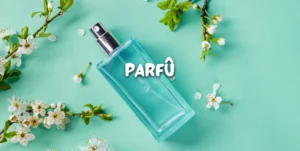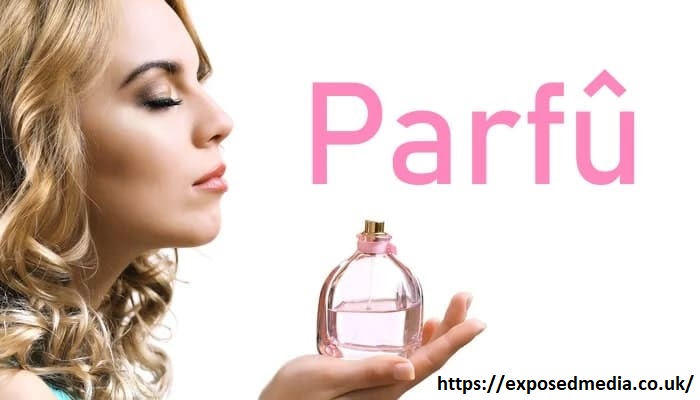Parfû, typically called fragrance, is a sensory marvel that has captivated humans for centuries. It is extra than only a product; it’s miles an artwork, a science, and a form of private expression that transcends time and tradition. Derived from the Latin phrases “per fumum,” meaning “via smoke,” fragrance started out as a manner to offer fragrant offerings to the gods in historical times. Today, it is a key element of every day life, influencing fashion, moods, and reminiscences.
In this article, we will delve into the history of parfû, its composition, types, the cultural significance it holds, and the way it performs an essential function in personal identity and appeal.
The History of Parfû
The records of parfû dates returned to ancient civilizations consisting of Mesopotamia, Egypt, and the Indus Valley. Perfume became used in spiritual ceremonies, embalming methods, and private beautification practices. The Egyptians, as an example, had been masters of perfumery, growing oils and balms infused with aromatic plants and herbs like myrrh and frankincense. Cleopatra, the famous Egyptian queen, become stated to have used perfume as a weapon of seduction, leaving trails of irresistible scents anywhere she went.
The Romans and Greeks multiplied the use of parfû, including new components and refining the manufacturing strategies. During the Middle Ages, the art of perfumery spread throughout Europe, with France emerging as a international chief within the production of first-rate fragrances at some point of the Renaissance. By the 17th century, France became synonymous with parfû, setting up Grasse as the fragrance capital of the arena.
The Science Behind Parfû: Composition and Ingredients
At its middle, parfû is a mix of aromatic crucial oils, aroma compounds, fixatives, and solvents. The concentration of those ingredients determines the intensity and durability of the heady scent. Generally, perfumes are composed of 3 stages of notes: top, middle (or coronary heart), and base.
- Top Notes: These are the scents that you first scent whilst you practice perfume. They are normally light and clean, lasting for a few minutes to an hour. Common pinnacle notes include citrus, herbs, and light florals like lavender.
- Middle Notes: Also referred to as heart notes, these shape the frame of the parfû and emerge after the pinnacle notes fade. They last for several hours and are generally hotter, presenting scents like rose, jasmine, and spices.
- Base Notes: Base notes give parfû its intensity and staying power. These are richer, heavier aromas such as sandalwood, vanilla, or musk that linger for hours, even days.
The combination of these layers creates the complexity of a perfume, making sure it evolves through the years at the skin.

Types of Parfû
Parfû is to be had in numerous different sorts, every classified with the aid of the awareness of aromatic compounds it includes:
- Perfume (Parfum): The most concentrated and longest-lasting shape of perfume, parfum has a excessive percent of critical oils, often 20-30%, giving it a strong, enduring fragrance. It can ultimate 6-eight hours or extra.
- Eau de Parfum (EDP): Slightly much less concentrated than parfum, EDP incorporates round 15-20% crucial oils. It is more cheap than natural fragrance however nevertheless lasts for four-6 hours.
- Eau de Toilette (EDT): With a decrease attention of critical oils, typically around 5-15%, EDT is lighter and appropriate for everyday wear. Its toughness is commonly round 3-4 hours.
- Eau de Cologne (EDC): This perfume is even lighter, containing handiest 2-4% important oils. It has a sparkling, fleeting scent and typically lasts around 2-three hours.
- Eau Fraîche: The maximum diluted of all, with handiest 1-3% critical oils. It is often used as a fresh frame mist and lasts for approximately an hour.
The Cultural Significance of Parfû
Parfû holds deep cultural significance across diverse societies. In the Middle East, attars (natural perfumes) are loved for their religious and restoration properties. Fragrances like oud and rose are regularly utilized in non secular practices and celebrations. In Europe, parfû have become an important part of aristocratic life during the seventeenth and 18th centuries, with French royals like Louis XIV acknowledged for his “perfumed court docket.”
Today, parfû is a worldwide industry, and the alternatives of scents are often tied to cultural possibilities. For example, in Asia, lighter and more floral perfumes are desired, whilst within the Middle East, heavier, spicier fragrances are greater popular.
Parfû and Personal Identity
Fragrance has the particular capacity to awaken recollections, influence moods, and make lasting impressions. The scent you pick out often becomes part of your non-public identification. A signature fragrance can inform lots approximately an character’s persona. For example, someone who wears a highly spiced, formidable scent may be visible as confident and outgoing, even as a wearer of tender florals may mission elegance and charm.
In fact, parfû plays one of these tremendous position in identity that positive scents can be recognized as belonging to a particular individual. The connection among scent and reminiscence is so sturdy that even a faint whiff of a selected perfume can trigger recollections of specific activities, human beings, or feelings.
The Modern-Day Parfû Industry
The modern-day parfû industry is a multibillion-dollar global company, pushed through innovation and creativity. Today’s perfumes are developed the usage of a blend of herbal and artificial ingredients. Master perfumers, also referred to as “noses,” craft these fragrances by means of meticulously balancing scents, mixing accords, and trying out how fragrances interact with the human frame.
In latest years, there was a developing demand for niche perfumes. These fragrances are typically produced by smaller, impartial manufacturers that concentrate on creativity and artistry, frequently eschewing mass-market enchantment for greater unique and unconventional scents.
Eco-conscious clients have also pushed the industry in the direction of sustainability, with a upward thrust in organic, cruelty-unfastened, and environmentally friendly parfû options. Brands are actually growing perfumes with ethically sourced components and offering refillable bottles to reduce waste.
Choosing the Right Parfû for You
When choosing a parfû, it’s miles vital to do not forget your options, skin chemistry, and life-style. What smells divine on one person may not work on every other, as perfumes react otherwise depending on an individual’s body chemistry.
Here are a few tips for selecting the appropriate parfû:
- Test Before You Buy: Always take a look at parfû on your skin rather than just smelling it in the bottle or on a paper strip. Let the perfume settle for a few hours to revel in the way it evolves through the years.
- Consider the Occasion: Some perfumes are better applicable for unique occasions. Lighter, fresher scents work well for daylight put on, whilst richer, greater severe fragrances are best for evening activities.
- Seasonal Scents: The weather can impact how a fragrance smells. In hotter climates, lighter fragrances with citrus or floral notes are perfect, even as iciness months allow for deeper, spicier scents.
Conclusion
Parfû is a lovely blend of art and science, with the electricity to rouse feelings, form identities, and create lasting impressions. Whether you decide upon ambitious, intoxicating fragrances or diffused, ethereal ones, the proper parfû can raise your presence and upload a touch of magic on your ordinary existence. The global of parfû is considerable and sundry, imparting an infinite array of scents that can be tailor-made to fit your mood, personality, or even the seasons.


